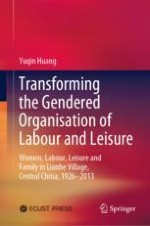
2020 | OriginalPaper | Buchkapitel
1. Introduction
verfasst von : Yuqin Huang
Erschienen in: Transforming the Gendered Organisation of Labour and Leisure
Verlag: Springer Singapore
Aktivieren Sie unsere intelligente Suche, um passende Fachinhalte oder Patente zu finden.
Wählen Sie Textabschnitte aus um mit Künstlicher Intelligenz passenden Patente zu finden. powered by
Markieren Sie Textabschnitte, um KI-gestützt weitere passende Inhalte zu finden. powered by